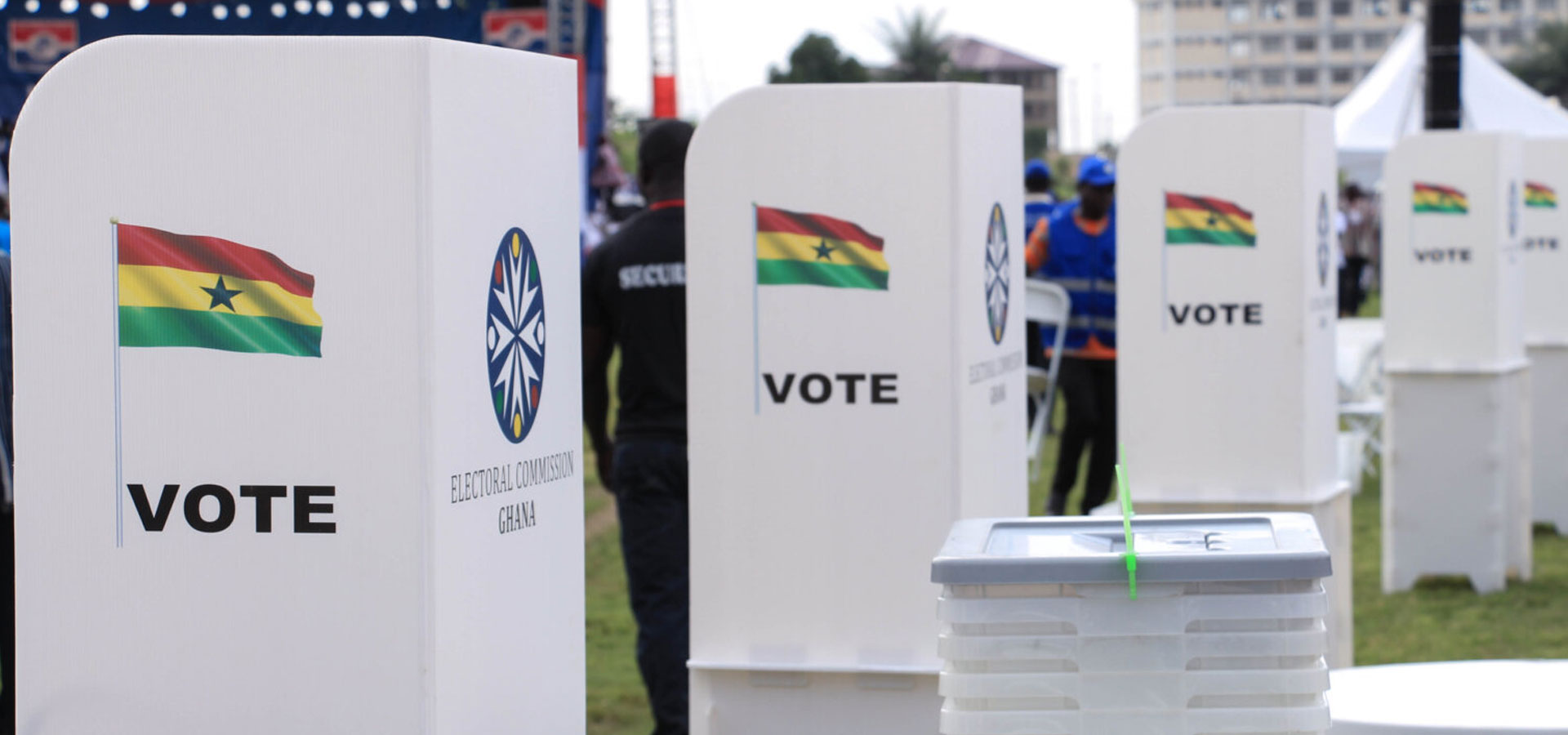NDC Now Sole Contender in Tamale Central By-Election
The Tamale Central by-election has taken a dramatic turn after two opposition parties, the People’s National Convention (PNC) and the Liberal Party of Ghana (LPG), unexpectedly pulled out of the race. Their withdrawal, which came shortly after both had filed nominations, leaves the National Democratic Congress (NDC) as the only party with a candidate in the contest.
An Electoral Commission (EC) source confirmed the move, describing it as an official withdrawal that clears the path for the NDC to retain the seat without opposition. If upheld, this outcome could mark one of the rare occasions in recent parliamentary history where a major party secures a seat without a competitive vote.
Electoral Commission Confirms New Developments
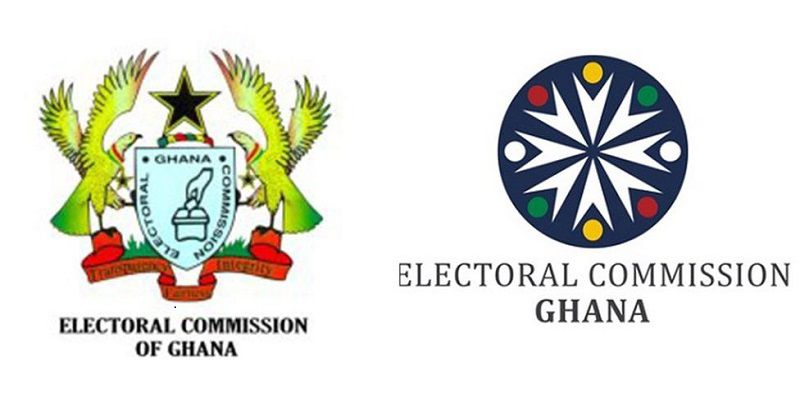
The Tamale Metro EC Director, Anaba Samson, had earlier announced that five prospective candidates were expected to contest the Tamale Central by-election: representatives of the NDC, PNC, LPG, All People’s Congress (APC), and an independent aspirant. However, by the 5:00 p.m. deadline on September 10, only the NDC, PNC, and LPG successfully filed their paperwork.
The sudden withdrawal of the PNC and LPG candidates drastically changes the electoral outlook. The EC is expected to issue a formal announcement in the coming days to confirm whether the NDC will be declared winner or if a different administrative process will be followed.
What the Withdrawal Means for Voters
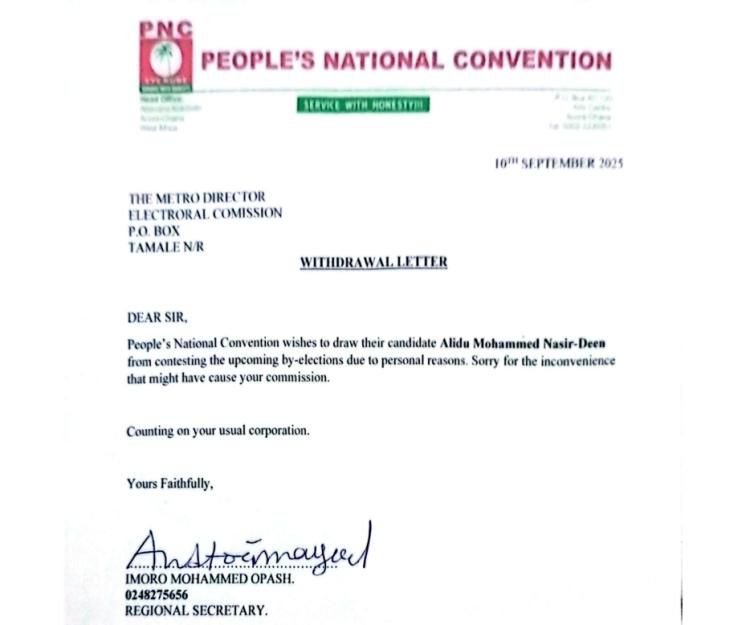
For voters in Tamale Central, the withdrawals carry major implications. The by-election, which many residents had anticipated as a platform for debating development issues, now risks becoming a formality.
Loss of competition: Constituents will not have the opportunity to evaluate multiple candidates and weigh different policy proposals.
Automatic retention: The NDC’s candidate may be declared winner without a ballot, reducing the level of civic engagement.
Missed debates: Without rival campaigns, critical issues such as road infrastructure, youth employment, and education support may not receive the robust public scrutiny that election campaigns usually provide.
This situation highlights the challenges smaller political parties face in Ghana, where resource limitations, organizational weaknesses, and low visibility often undermine their ability to sustain campaigns beyond the filing stage.
Historical Context of Unopposed Elections
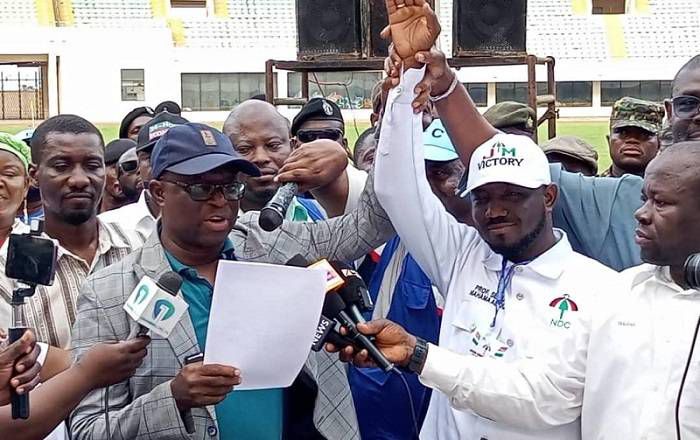
Ghana’s multiparty democracy has rarely witnessed parliamentary candidates running unopposed. Such occurrences are more common in local government elections, particularly in rural communities. However, for parliamentary seats, especially in politically vibrant regions such as the Northern Region, uncontested races are unusual and often raise broader concerns about democratic participation.
The Tamale Central seat has long been considered an NDC stronghold. The party’s dominance in the constituency is reflected in past election results, where it has consistently outperformed its rivals. Yet, the absence of competition this time may further entrench perceptions that smaller parties struggle to challenge the influence of the two dominant political forces the NDC and the New Patriotic Party (NPP).
Broader Political Implications
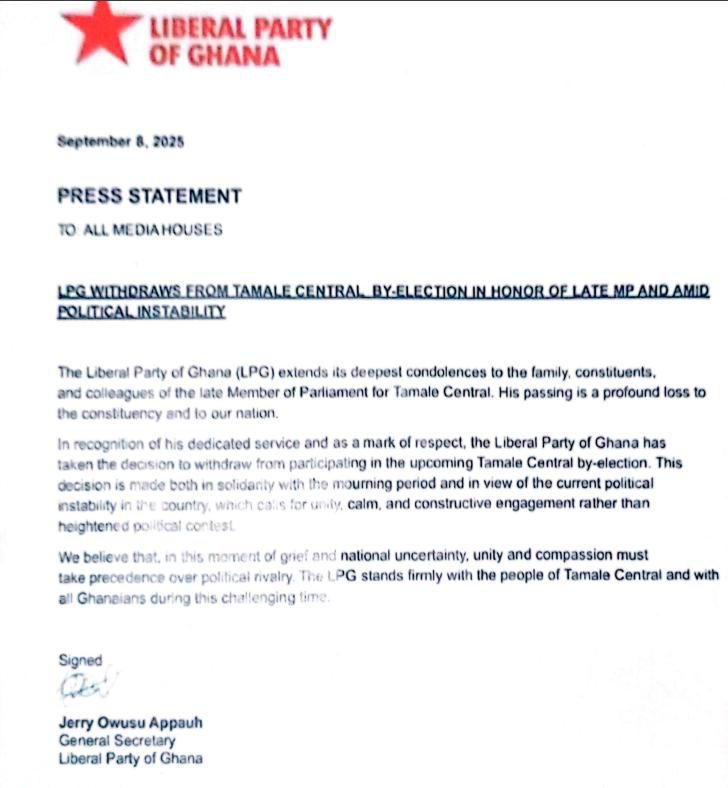
The withdrawal of the PNC and LPG candidates from the Tamale Central by-election has significance beyond the constituency. For the NDC, it provides a smoother path to retaining a critical seat in Parliament, which could be vital in balancing numbers during contentious debates or votes.
For smaller parties, however, the development signals a deeper crisis of viability. Without strong representation in Parliament, the voices of alternative political movements risk being drowned out in national discourse. Political analysts argue that Ghana’s democracy benefits from diverse participation, and unopposed elections undermine this principle by limiting voter choice.
Ordinary Ghanaians watching these events unfold may interpret the withdrawals as a sign of the growing dominance of the two major parties. At the same time, it raises the question of whether electoral reforms or stronger institutional support are needed to level the playing field for smaller political organizations.
Comparing Past Cases
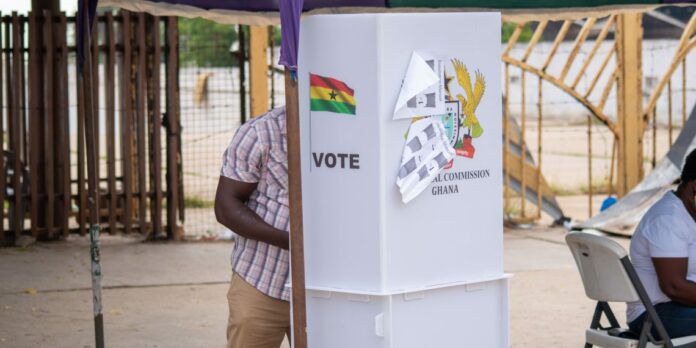
This is not the first time Ghana has seen limited competition in elections. In 2016, several local assembly elections ended with candidates running unopposed in small districts. However, parliamentary elections have almost always drawn multiple competitors, given the prestige and influence of a parliamentary seat.
The Tamale Central by-election could therefore be remembered as a rare instance of near-automatic victory in Ghana’s parliamentary politics, comparable only to isolated cases in the Fourth Republic.
Takeaway for Citizens
The unfolding events in the Tamale Central by-election illustrate both the strength and weaknesses of Ghana’s democratic system. On one hand, the withdrawal process shows that political parties retain the right to make strategic decisions. On the other hand, the lack of competition undermines the democratic ideal of voter choice.
For constituents, this may feel like a missed opportunity to hold candidates accountable through a vibrant campaign. For Ghana as a whole, it underscores the urgent need to strengthen smaller parties so that future elections can be more competitive and representative.

